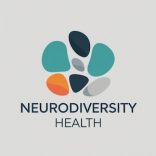Child & Teen Autism (ASD) Assessment
Our child and teen Autism Spectrum Disorder (ASD) assessments are designed to help families understand whether autism may be influencing a young person’s social interaction, communication, behaviour, or daily routines. Each assessment is conducted by experienced clinicians and follows national best practice and NICE guidelines, ensuring a thorough, structured, and evidence-based evaluation.
How the Assessment Works
-
Initial Information Gathering
The process begins with a detailed collection of information from parents or carers, which may include:
-
Developmental history, including early childhood milestones
-
Behaviour patterns at home and in educational or social settings
-
Sensory preferences and routine-based behaviours
-
Strengths, challenges, and areas of concern
Where possible, input is also gathered from schools, teachers, or other professionals who work with your child. This multi-source information helps create a complete picture of the child’s functioning across environments.
-
-
Comprehensive Diagnostic Assessment
The young person will meet with a specialist ASD clinician, typically a Registered Mental Health Nurse, consultant child psychiatrist, and clinical psychologist.
The assessment may include:
-
Structured interviews with parents/carers and, where appropriate, the child or teen
-
Direct observation of social communication, interaction, and play/behaviour patterns
-
Standardised ASD assessment tools, such as ADOS-2 (Autism Diagnostic Observation Schedule, 2nd Edition) and ADI-R (Autism Diagnostic Interview – Revised)
-
Review of questionnaires and checklists completed by parents, teachers, or other professionals
The clinician evaluates social communication, restricted and repetitive behaviours, sensory sensitivities, and adaptive functioning, while recognising the young person’s individual strengths and needs.
-
-
Diagnostic Formulation & Clinical Review
After the assessment, the clinician reviews all gathered data — including interviews, observation, and multi-source questionnaires — to reach a diagnostic conclusion in line with DSM-5 or ICD-11 criteria.
Complex cases may be discussed in a multi-disciplinary team (MDT) meeting to ensure a balanced, evidence-based outcome.
-
Written Diagnostic Report
Families receive a clear, comprehensive report detailing:
-
The diagnostic outcome (ASD confirmed, not confirmed, or inconclusive)
-
How the diagnosis was reached, with reference to clinical guidelines
-
The child’s unique profile of strengths, challenges, and support requirements
-
Practical recommendations for home, school, and everyday life
-
Important Information About Follow-Up
The initial assessment package covers the full diagnostic process — from information gathering to written report.
Ongoing support, therapy, and follow-up sessions are not included in this package.
Separate post-diagnostic packages are available and can include:
-
One-to-one guidance sessions for families
-
Educational support planning and liaison with school staff
-
Referrals for therapies, counselling, or occupational support
-
Ongoing monitoring or review sessions
These follow-up options can be arranged after the assessment is complete, providing tailored support to help your child thrive over time.
Coming soon – bookings opening shortly.
